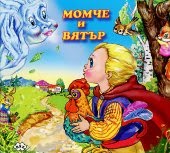



 In Germany, in the kindergarten „Le petit prince“, the Easter bunny comes every year to bring a little nest to the children. This year we celebrated Easter a little differently. The children built a large nest out of sticks in the forest. Some days later, they hiked to the nest that they had made and actually found some Easter eggs, little rabbits and chicks, all made of chocolate, as well as other goodies.
In Germany, in the kindergarten „Le petit prince“, the Easter bunny comes every year to bring a little nest to the children. This year we celebrated Easter a little differently. The children built a large nest out of sticks in the forest. Some days later, they hiked to the nest that they had made and actually found some Easter eggs, little rabbits and chicks, all made of chocolate, as well as other goodies.Happily loaded with their treasures, they returned to the kindergarten, where Nikolaj’s father had prepared a huge buffet with hard-boiled eggs, tomatoes, cucumbers, bread and other delicacies. This is how we celebrated Easter this year.
Heidi Quéré















